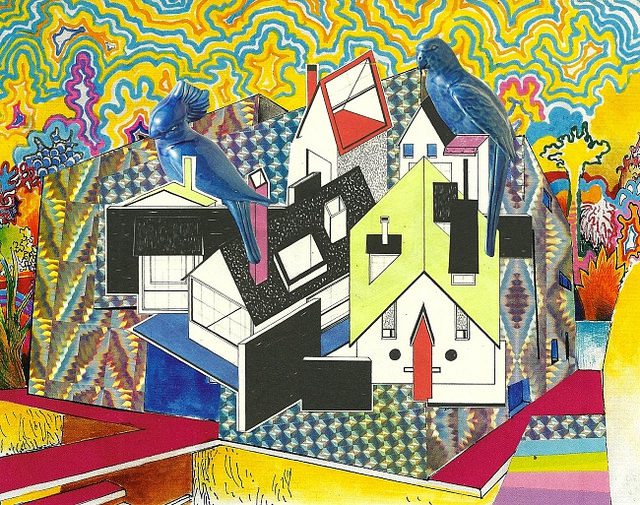Public housing is not a gift to those who cannot find shelter: it is an obligation of the commonwealth that asserts no person living in this country should be deprived of a decent home even if the market cannot provide it. Like public education, Social Security, and the minimum wage, it says you will not suffer if you work hard and play by the rules.
At least, that’s how it started. It took a few wrong turns. Molded by racism, competition by private developers, and misguided, if well-meaning, changes in its structure, public housing changed after the 1940s. In big, urban centers, towers were built on less desirable and isolated sites; the very poor were gathered and secluded.
At the same time, there were massive social changes – from white flight and suburbanization to the deindustrialization of many cities. In large public housing developments around the country an artificial world was created, characterized, it seemed, by crime, no work, and little hope.
Then along comes “deconcentration” policy, Edward Goetz tells us: a simple solution whose execution was, at best, stymied by politics, racism and the ever-present lack of resources. At worst, some contend, it gave cover to displacement of the poor, acquisition of once blighted but now coveted land by developers, and the abandonment of public housing by the federal government.
Deconcentration policy has been a driver of our 10-year public housing experiment: HOPE VI. And if any HOPE VI project can be emblematic of the program, it is Chicago’s. With about 20,000 units in high-rise buildings to be razed, many already down, the most challenging and important issue remains unsettled – what happens to the residents.
In spite of promises of “a better life,” Sudhir Venkatesh and Isil Celimli show us that many of the residents of Chicago’s public housing are not making gains. They are not doing well in the private housing market. Many want to return to the places they’ve called home for lifetimes. For some the problems of transition are due to the lack of resources. But those who send their children back to the underperforming schools of the old neighborhood and who return to the network of friends and relatives they’ve left belie a fundamental premise of the policy at the heart of HOPE VI – that the old neighborhoods are only made up of burnt-out buildings, pathologies, and hopelessness.
It is certainly a familiar premise. If you only looked at real estate values and crime reports, it might be hard to argue. But neighborhoods, even public housing neighborhoods, are flesh and blood communities. When neighborhoods are torn, Mindy Fullilove explains, culture and memory are ripped apart. This pattern is not new to HOPE VI or Chicago. Urban renewal tore through neighborhoods like Pittsburgh’s Hill District and pulled up the roots of families and institutions. That pain remained in the Hill when, many years later, HOPE VI arrived. But the memories of a community displaced were still alive and helped the current residents of the Hill to drive its public housing redevelopment program, instead of being driven by it. Patricia Murphy tells us that winning story.
Perhaps these essays will inform our work in neighborhoods, with or without public housing. As we “revitalize” these places, we must be ever aware of what’s really in front of us and how deeply go the roots of all communities.
Which brings us back to the commonweal. I like that old word. It’s about getting ahead by forming a circle together, instead of climbing over each other. It’s the civil society writ large. It’s very liberal.
We’ve had a lot of analysis recently suggesting the election’s outcome would have been different had we, for example, used the right language or organized more effectively. All true, and we did come close. Maybe the strongest lesson comes from Florida where a candidate for president who is not a champion of low-income workers won at the same time that voters approved a significant increase in the state’s minimum wage.
Maybe the outcome of the election would have been different if the leaders of the Democratic Party had spoken out for, and believed, that unions strengthen working people and should not be restricted. Or that no one working full-time in America should be in poverty, so we need a minimum wage that meets at least that standard. Or that the role of government is not to provide tax cuts for corporations but to support health care, education and housing for workers. Perhaps we need a party that believes the market becomes strongest when we strengthen the commonweal.
Read a few other post-election opinions.
New Arrivals
In October, Alana Lee joined us as office administrator. Alana has worked in both the nonprofit and private sectors. Alana was a managing editor of Africa Report magazine, the only American magazine focusing on African economic and political issues, and she was the co-owner of a graphic arts and pre-press service bureau in Manhattan. David Holtzman joined us as associate editor. David worked previously at the Metropolitan Area Planning Council and as a reporter at the Community Newspaper Company, both in the Boston area. David graduated from Colby College with a B.A. in government and from Tufts University with a master’s in urban and environmental policy.
Thank You
As we close the year we want to thank the many people who’ve made our work possible, including our donors, funders and partner organizations. We also want to thank the many editorial volunteers who have contributed their insights to our magazine and an outstanding Web site volunteer, Eleanor Taub. And of course, we want to thank all of our readers whose dedication to the struggle for a better world brings meaning to our work.





Comments